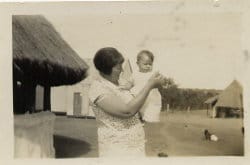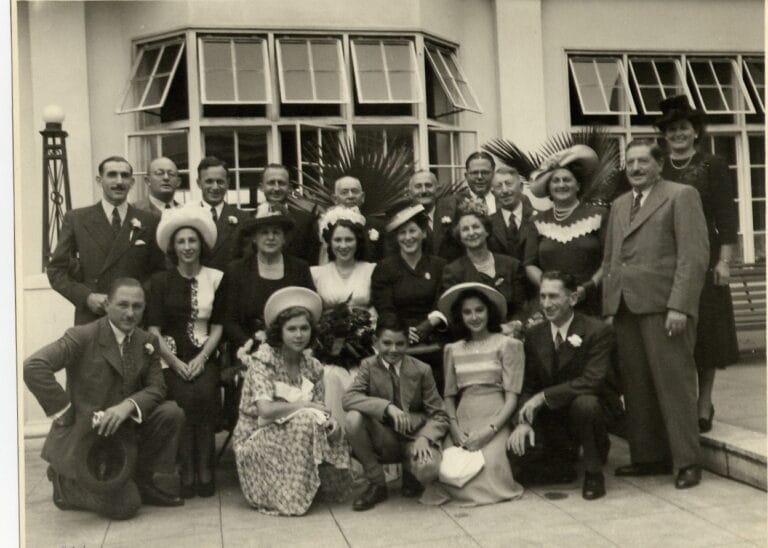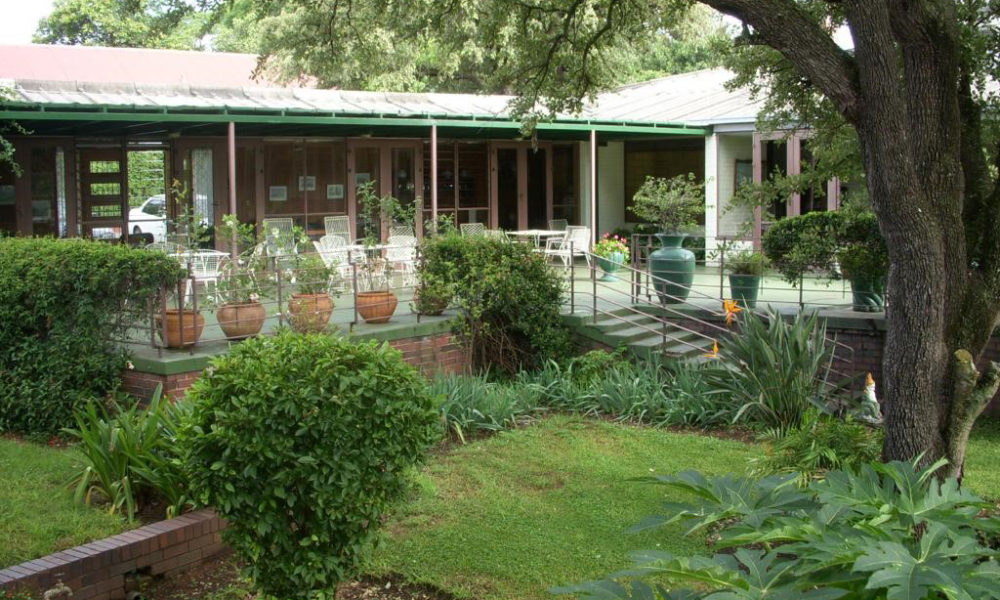The Life of a Pioneer Wife
Dina Masinter and Joseph Schattil, both escapees from the pogroms of Lithuania, married in 1907. Her first home in Rhodesia was at the Jumbo Mine where Joseph had a mine concession store.

“Roads” were dirt, just tracks in parts and sometimes one had to cut the road through the bush oneself. During the rainy season a corduroy of thick sticks had to be laid across the road to prevent a cart or car from sinking up to the axles in mud. An axe, pick and shovel were tools never to be overlooked for travel.
The house was built of pole and dagga (mud) with a thatch roof and a cow dung floor which was very cool. But the kitchen was like an oven, with a corrugated iron roof which housed a wood stove at a distance from the house because of the hazard of fire. There was no running water or electric light. Paraffin lanterns and candles lit the house at night.
Rain water was precious, stored in tanks, it was inadequate in the dry winter season and was supplemented with water carted from the river (if it was wet). Bath water was heated on the kitchen stove or an outside fire, and was carted into the bathroom in buckets. Laundry was done down at the river if it was in walking distance.
The P.K. (long drop) was housed 200 yards away from the house; a treacherous trip by the light of the moon and the stars aided by a paraffin lamp, looking out for spiders, snakes, and bats. The cough of a leopard or bark of a jackal quickened Dina's pulse and her pace.
Other homes the family lived in as they moved from concession to concession were built with a timber frame, on stilts surrounded by a moat of bitumen. The inner shell of the house was paneled with wood and the outer shell was made of corrugated iron. It was cool under the floor of these houses, and with no fridges, many items were stored under the house. Here white ant invasions could be monitored, too.
Finally after 23 years and five children, Dina and Joseph settled in Que Que.
Joseph was storekeeper, butcher, and baker. His youngest daughter, Esme, would travel with him out on the Gokwe Road to Jombe and Zhombe to buy the cattle for the butchery bargaining with Chief Kassela for ‘a good price’. Meat sold for thruppence a pound and a whole ox went for ₤2/10/00. There was plenty of game to look out for on these trips, once coming across a pride of lions.
For the first time the family enjoyed Jewish community life: the Mintz family, the Benatars, the Menaches, Baldachins, Kahns and Middledorfs, rode out in the back of Sloman’s lorry for Sunday picnics at Sebakwe Poort. Although there was no shul in Que Que, Yom Tov services were held at the W.I.
A major entertainment was waiting for the mixed train to pass through QQ to hear the gossip of the land. There were two films a week, and they gathered with the Slomans, the Kahns, and the Ricks to play Solo on Sunday evenings.
And finally, in 1935, luxury arrived in the form of a paraffin refrigerator!

At Rhodesia's peak of prosperity there were 7000 Jews in the community. In 2013 the population was down to 150, and sadly Savyon Lodge, long the Jewish old age home in Bulawayo, closed.
The historical novel Whitewashed Jacarandas and its sequel Full of Possibilities are both available on Amazon as paperbacks and eBooks.
These books are inspired by Diana's family's experiences in small town Southern Rhodesia after WWII.
The various town characters lay bare the racial arrogance of the times, paternalistic idealism, Zionist fervor and anti-Semitism, the proper place of a wife, modernization versus hard-won ways of doing things, and treatment of endemic disease versus investment in public health. It's a roller coaster read.
References
- Gillian Midgen (nee Schattil) for direction to Childhood Reminiscences of an Early Settler’s Daughter by Esme Newfield published in https://zjc.org.il/
- Article by Alexander Schattil with comments by Leslie Comaroff courtesy of Lynette Hirschowitz (nee Samson).
- Majuta by Barry Kosim


- Photo credits https://zjc.org.il/newfield/


